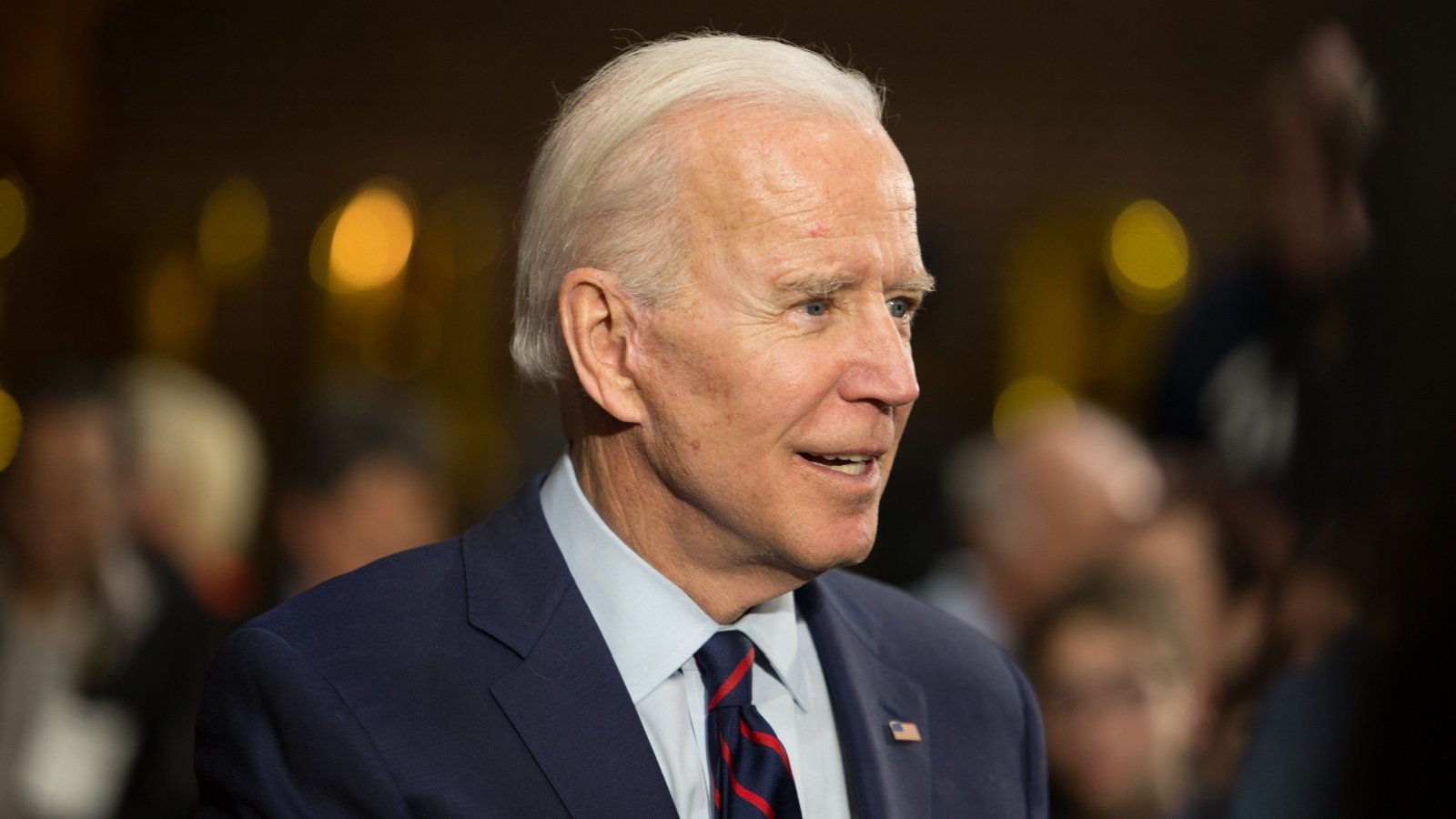The Biden Administration has finalized a new rule increasing the population of the U.S. workforce eligible for overtime pay. Historically, salaried workers have generally not had access to overtime pay like hourly and shift workers. This rule mandates eligibility for certain salaried workers to receive overtime pay.
Expansive Regulatory Change

This Administrative action is one of the most expansive regulatory changes regarding overtime pay in recent history. The rule will take effect July 1.
Impact Estimates

The Department of Labor calculates that four million salaried workers will newly qualify for overtime pay starting this year, with just under 300,000 higher-salary workers also becoming eligible.
New Overtime Eligibility Thresholds

In the coming months, workers whose salaries amount to less than $43,888 annually must receive overtime compensation for the first time. In the past, if an employee was categorized as an “executive, administrative, or professional (EAP),” they were not eligible for overtime pay.
Salary threshold to Be Increased and Reevaluated Incrementally

In 2025, the threshold will increase further to $58,656. The Department of Labor will reevaluate the pay threshold every three years moving forward.
Mechanics of Overtime Pay Protections

Federal law covers overtime pay protections in the Fair Labor Standards Act (FLSA). Under this law, hourly employees who work over 40 hours per week get paid a premium 1.5 times their base pay for any hours worked over 40 hours.
The Trump Administration originally made this pay structure mandatory for lower wage salaried employees, and the Biden Administration has taken this regulation even further to qualify more individuals with higher salaries.
Labor Department’s Statement

Acting Labor Secretary Julie Su stated that salaried workers were not compensated for their extra hours worked, unlike their colleagues who work on an hourly basis. This rule changes that.
Rule Comes on the Heels of Banning Noncompetes

The Department of Labor has recently rolled out several regulations to increase labor equality, an objective of the Biden Administration. The Department also recently released a rule banning the enforcement of noncompete agreements for almost all industries except for non-profits.
Background on Overtime Thresholds

Such regulations requiring overtime pay for salaried employees already exist, but this rule would increase the annual salary threshold, making employees eligible for the mandated overtime pay. The original pay threshold of $35,568 was set during the Trump Presidency in 2019. This rulemaking expands on that initiative.
Opposition and Criticism

The new Labor rule has been criticized by some of the business community as well as some Republican politicians such as Representative Virginia Foxx (R-NC), who calls the initiative “excessive and heavy-handed.” According to this perspective, the new regulations will negatively impact employers’ bottom line and increase consumer costs.
Support from Advocates

Labor advocates, on the other hand, have lauded the move from the Administration, emphasizing that the ruling will force employers to adequately compensate employees for all the hours given to the company.
Impact on Expectation on Addition Time Spent at the Office

Some employees complain about the expectation of excess uncompensated time spent at the office to be noticed for advancement. This works against parents or employees with responsibilities beyond their salaried position who may not be free to spend extra hours on the job like their less encumbered colleagues.
Impact on “Creep” Within Job Descriptions and Expectations

Additionally, the salaried position can often serve as cover for job description creep, where employers foist additional work on an employee that the employee may not be able to complete within the salaried hours, forcing the employee to spend additional uncompensated hours at the office to complete extra tasks not able to be completed within the regular workday hours.
Impact on Employee’s Total Well-Being

The new rule could be a boon to employee’s total well-being, as it would turn the tide from employers incentivizing extra time spent at the office to urging employees to go home at the end of the work day.









Ein Casino Bonus ohne Einzahlung ist ein Bonus, der dir ohne Einzahlung von Echtgeld gutgeschrieben wird.
Wenn sich ein Leser mithilfe dieser Links bei einem Online Casino registriert,
erhalten wir eine Provision. Der Casino Bonus ohne Einzahlung oder auch No Deposit Bonus wird dir ohne Einzahlung von Echtgeld gutschrieben. Mit
Vorliebe testen wir die neuesten Online Casinos auf dem Markt und handeln dabei auch noch gewinnbringende Neukundenboni für Sie
aus! Wenn Sie aber Startguthaben gutgeschrieben bekommen, stehen Ihnen meist auch die computergesteuerten Tischspiele offen. Für das Spielen ohne Bonus
um echtes Geld ist allerdings eine Echtgeldeinzahlung notwendig, denn sonst steht Ihnen nur die Demoversion um Spielgeld zur Verfügung.
Außerdem können Sie mit dem Willkommensbonus-Paket zusätzliche Guthaben und 325 weitere Freispiele auf
Ihre ersten Einzahlungen erhalten. Melden Sie
sich im X7 Casino an und Sie können 10 Freispiele ohne Einzahlung für Big Bass Bonanza sowie einen 500%
Ersteinzahlungsbonus bis zu €1.000 erhalten. Die Spieler müssen das gewonnene Geld aus den Freispielen 25x
mal umsetzen und können es dann erst auszahlen oder
als Echtgeld verwenden. All diese Casinos bieten noch weitere
Casinoboni zu diesen Freispielen. Diese Option ist
die perfekte Lösung für jeden, der neu im Bereich der Online Casinos ist und
einen Eindruck davon gewinnen will, wie es ist, hier zu spielen.
So kannst du einen Bonus im Casino ohne Einzahlung nutzen.Game AuswahlBetano
Bonus400 Freispiele schon für 1€! Oftmals findet sich
aber beim Einzahlungsbonus ein Zusatz zu einem sofortigen No Deposit Casino Bonus 2025.
Wir stellen dir jetzt die Möglichkeiten vor, wie du entsprechende Angebote für den besten neuen Online Casino Neukundenbonus ohne Einzahlung erhältst
und erklären dir alle wichtigen Details hierzu.
Danach geht es weiter mit einem 100 % Einzahlungsbonus bis zu 100 Euro.
References:
https://online-spielhallen.de/dein-cashback-system-bei-my-empire-casino-alles-was-du-wissen-musst/
Kapwing’s online video maker works on any device and browser, though we recommend Chromium-based browsers like Google Chrome, Microsoft Edge, and Safari.
100+ collaborative video editing tools to streamline the
creative process are also available in the online video editor.
With no downloads or installations, online editors enable anyone to get started with video editing.
Kapwing’s online Video Editor works with all popular file types
for video (MP4, AVI, MOV, WebM, and more) If you’re using Kapwing on a
Free account then all exports from within the online video maker will contain a watermark.
Use the online video maker to customize or create templates from
scratch, choosing from a diverse selection of templates and memes updated daily
These are the 5 top online casinos in Canada, each with a special highlight, from large gaming libraries and exclusive promotions to a focus on specific payment methods.
Look for casinos with 24/7 customer support, clear terms, and bonuses and promotions that will enhance your
gaming experience. To choose the right online casino, look at factors such as licensing,
game variety, and bonuses. Start your gaming journey with confidence by choosing one
of the trusted sites featured here and enjoy the ultimate online casino experience.
When engaging in online gambling, the security of your
financial transactions is crucial. Experienced players use
this to their advantage, spreading risk and increasing their chances of hitting a profitable table.
While everyone talks about setting a budget, professional players use advanced bankroll management
techniques. Choosing bonuses with lower wagering requirements can make it easier to cash out
your winnings.
From its luxurious design, first-class facilities and personalised customer service, no expense has been spared, making Crown Towers the height of luxury in Perth.
From thoughtful design, bespoke furniture, and
intuitive technology, experience Perth in pure luxury.
Late check-outs are not available Friday, Saturday,
Sunday, during school holidays, special events or when the hotels are
running at high occupancy. Check-out time is at 11am, unless you have
reserved a package that includes a later check-out time.
Families are welcome at Crown, with services including babysitting on request, high chairs in restaurants, and child-friendly
entertainment options. Crown’s Village Cinemas deliver a high-end movie experience with Gold Class lounges, plush recliners, in-seat dining and the latest Hollywood releases.
Discover world-class luxury, rejuvenation, and comfort with Crown Melbourne’s collection of premium hotels and award-winning spas.
The venue is equipped with dedicated staff, responsible gaming advisors, and access to self-exclusion tools.
Treat yourself to a day of pampering at Crown Spa, with a range
of exclusive La Prairie and Subtle Energies health and beauty treatments designed to
help you feel your best. Indulge in world-class fine dining, enjoy a casual meal with
friends, or relax and unwind in a stylish bar. Savour Sydney’s
culinary delights with an extensive range of dining options to suit every occasion and palate.
Experience a secluded tropical pool, tennis court,
day spa, as well as acclaimed restaurants, bars, and luxury boutiques.
A luxury hotel where plush living areas, deep soaking
baths, and floor-to-ceiling windows await you.
As a responsible entertainment venue, we are committed to ensuring the safety and well-being
of all our patrons and creating a safe and enjoyable environment for all
our guests and staff.
References:
https://blackcoin.co/best-10-online-casino-bonuses/
online casino uk paypal
References:
https://fatprawn.com/employer/our-favorite-paypal-casinos-2025-ranking-update/
online casino paypal
References:
jokakiki.shop